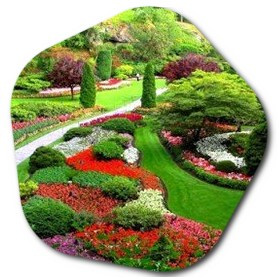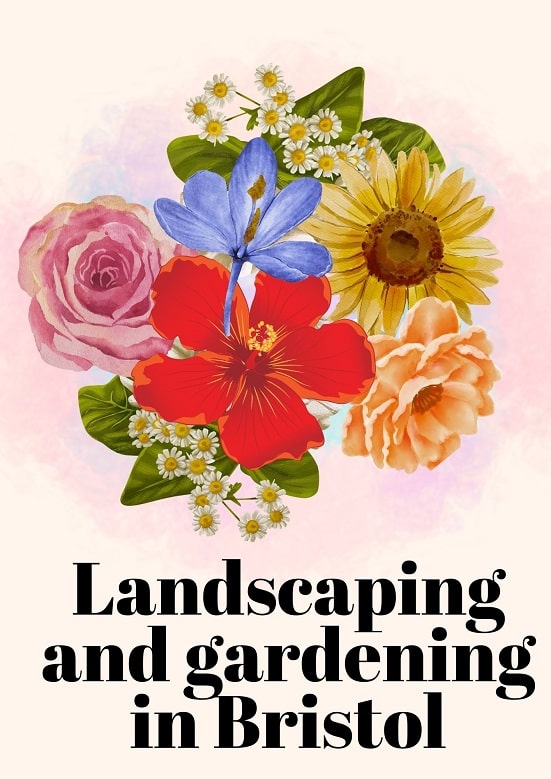Garden arrangement landscaping application in Bristol
As of my last knowledge update in September 2021, I don’t have specific information on the availability of garden arrangement and landscaping applications or services in Bristol or any other specific location. However, I can provide you with some general guidance on how to find landscaping and garden arrangement services or apps in your area:
- Search Online: You can start by conducting an online search using keywords like “garden landscaping services in Bristol” or “garden design apps for Bristol.” This will likely yield results for local landscaping companies and potentially mobile apps or online platforms that offer garden design and landscaping services.
- Ask for Recommendations: Seek recommendations from friends, family, neighbors, or coworkers who have had landscaping or garden arrangement work done. They may be able to recommend reputable professionals or services.
- Use Local Directories: Check local business directories, both online and offline, for listings of landscaping companies and garden designers in Bristol. Websites like Yelp, Google Maps, and Yellow Pages can be useful.
- Visit Local Garden Centers: Garden centers in Bristol often have information about local landscaping services or may offer design assistance themselves. Visiting a garden center can be a good way to gather information and resources.
- Social Media and Online Forums: Join local gardening or home improvement groups on social media platforms or online forums. Members of these groups may share recommendations or experiences with garden arrangement and landscaping services in Bristol.
- Check Mobile Apps: There are various mobile apps and online platforms that can help you with garden design and landscaping ideas. Popular apps like Houzz, Garden Planner, and iScape offer features for planning and visualizing garden layouts. Check app stores for availability and reviews.
- Consult with Professionals: Once you’ve identified potential landscaping companies or designers, consider scheduling consultations with them to discuss your specific garden arrangement needs, get cost estimates, and view their portfolios.

Please note that the availability of specific services and apps may change over time, and new options may become available. Always verify the credibility and qualifications of any professionals you hire for landscaping or garden design work. Additionally, make sure to check for any local regulations or permits that may be required for landscaping projects in your area.
What plants are suitable for gardening in Biristol?
Bristol, located in the southwestern part of England, has a temperate maritime climate with mild winters and relatively warm summers. The city’s climate is influenced by the Atlantic Ocean, which means it experiences mild temperatures and moderate rainfall throughout the year. This climate is conducive to a wide variety of plants. Here are some plants that are suitable for gardening in Bristol:
- Perennials:
- Lavender (Lavandula)
- Geranium (Geranium)
- Lupine (Lupinus)
- Echinacea (Echinacea purpurea)
- Hosta (Hosta)
- Hellebore (Helleborus)
- Shrubs:
- Rhododendron (Rhododendron)
- Camellia (Camellia)
- Hydrangea (Hydrangea)
- Fuchsia (Fuchsia)
- Weigela (Weigela)
- Azalea (Azalea)
- Climbing Plants:
- Clematis (Clematis)
- Jasmine (Jasminum)
- Honeysuckle (Lonicera)
- Wisteria (Wisteria)
- Virginia Creeper (Parthenocissus quinquefolia)
- Trees:
- English Oak (Quercus robur)
- Silver Birch (Betula pendula)
- Cherry (Prunus)
- Rowan (Sorbus aucuparia)
- Hornbeam (Carpinus betulus)
- London Plane (Platanus × acerifolia)
- Annuals and Bulbs:
- Marigold (Tagetes)
- Nasturtium (Tropaeolum majus)
- Daffodil (Narcissus)
- Tulip (Tulipa)
- Crocus (Crocus)
- Snowdrop (Galanthus)
- Herbs and Vegetables:
- Rosemary (Rosmarinus officinalis)
- Sage (Salvia officinalis)
- Thyme (Thymus vulgaris)
- Mint (Mentha)
- Lettuce (Lactuca sativa)
- Kale (Brassica oleracea)
- Native Plants: Consider planting native species, which are well adapted to the local ecosystem. Some examples include Bluebell (Hyacinthoides non-scripta), Primrose (Primula vulgaris), and Foxglove (Digitalis purpurea).

When selecting plants for your garden in Bristol, it’s essential to consider factors such as soil type, sun exposure, and local microclimates. You can also consult with local garden centers or horticultural experts for advice on plant selection and care, as they will have knowledge specific to the Bristol area. Additionally, proper soil preparation and maintenance practices, such as mulching and watering, will contribute to the health and vitality of your garden plants. Landscaping gardening companies in Bristol >>
Landscaping and gardening in Biristol
Landscaping and gardening in Bristol, as in any location, requires careful planning, knowledge of the local climate and soil conditions, and a creative approach to designing outdoor spaces. Here are some tips and steps to consider when landscaping and gardening in Bristol:
- Assess Your Space:
- Begin by assessing your outdoor space, including the size, shape, and existing features. Consider how you want to use the space, whether it’s for entertaining, gardening, relaxation, or a combination of purposes.
- Research Local Climate:
- Bristol has a mild maritime climate, but it’s important to understand the specific climate characteristics in your area, including temperature ranges, rainfall patterns, and frost dates. This information will guide your plant selection and maintenance schedule.
- Soil Testing:
- Conduct a soil test to determine the soil type and pH level in your garden. Knowing your soil’s characteristics will help you choose suitable plants and make any necessary amendments.
- Design Your Garden:
- Create a garden design plan that includes the layout of flower beds, pathways, outdoor living spaces, and any additional features like water features or structures. Consider factors such as sun exposure and shade when placing plants and features.
- Select Appropriate Plants:
- Choose plants that are well-suited to Bristol’s climate and soil conditions. Opt for a mix of native and non-native plants to create biodiversity and support local wildlife.
- Plant Maintenance:
- Regularly water, fertilize, and mulch your plants as needed. Prune and trim plants to maintain their shape and health. Be mindful of watering restrictions that may be in place during dry periods.
- Hardscaping and Features:
- Incorporate hardscaping elements like patios, pathways, and retaining walls into your landscape design. These can provide structure and functionality to your outdoor space.
- Sustainability:
- Consider sustainable gardening practices, such as using organic fertilizers, conserving water through efficient irrigation, and using native and drought-resistant plants to reduce the environmental impact of your garden.
- Wildlife-Friendly Landscaping:
- Create a wildlife-friendly garden by planting flowers that attract pollinators and providing habitats like birdhouses and insect hotels.
- Professional Help:
- If you’re not confident in your landscaping and gardening skills, or if you have a complex project in mind, consider hiring a professional landscaper or garden designer. They can help you bring your vision to life and ensure that your garden thrives.
- Local Regulations: Be aware of any local regulations or permits that may apply to landscaping projects, especially if you plan to make significant changes to your outdoor space.
Remember that landscaping and gardening are ongoing processes. Your garden will evolve over time, so be patient and enjoy the journey of creating and maintaining a beautiful outdoor space in Bristol. Bristol Lanscape >>





